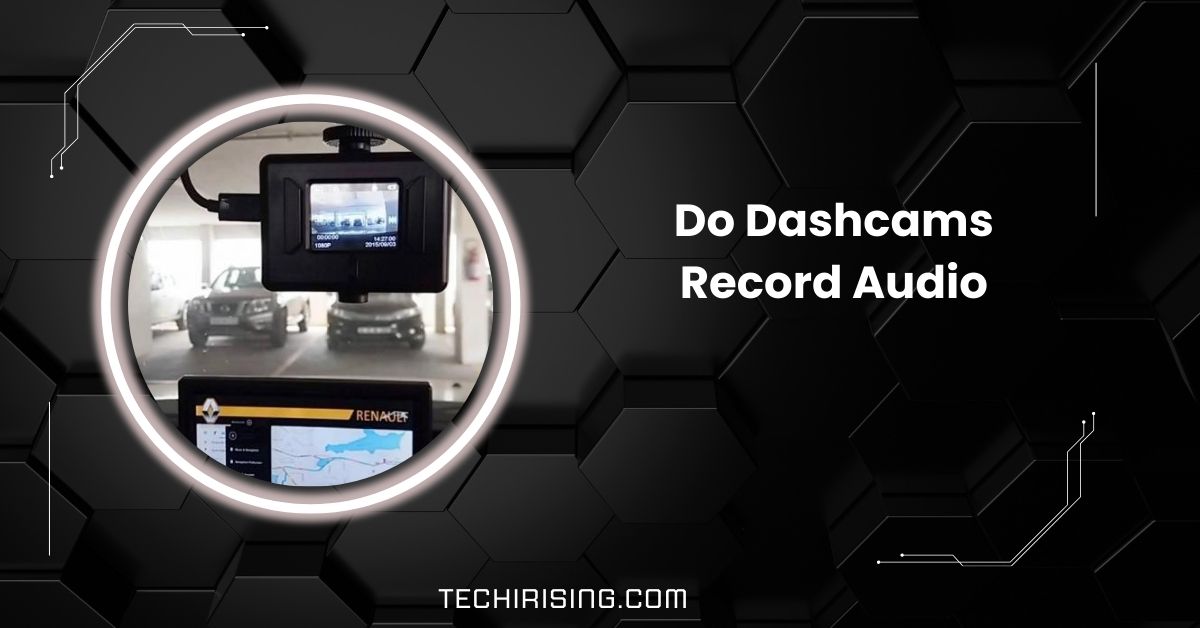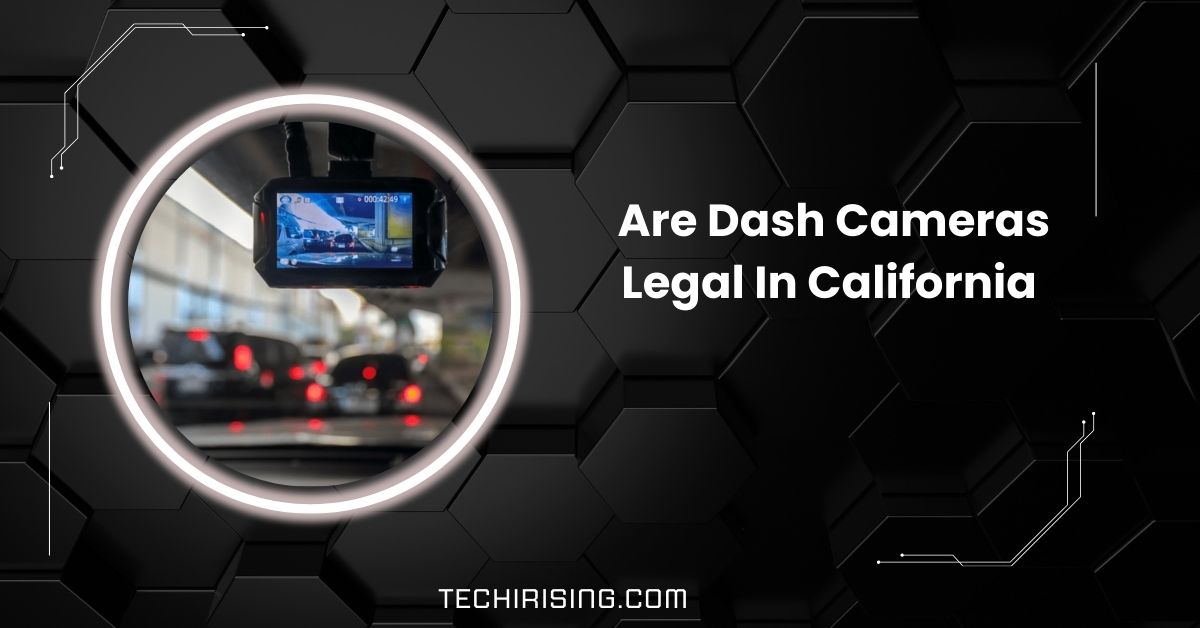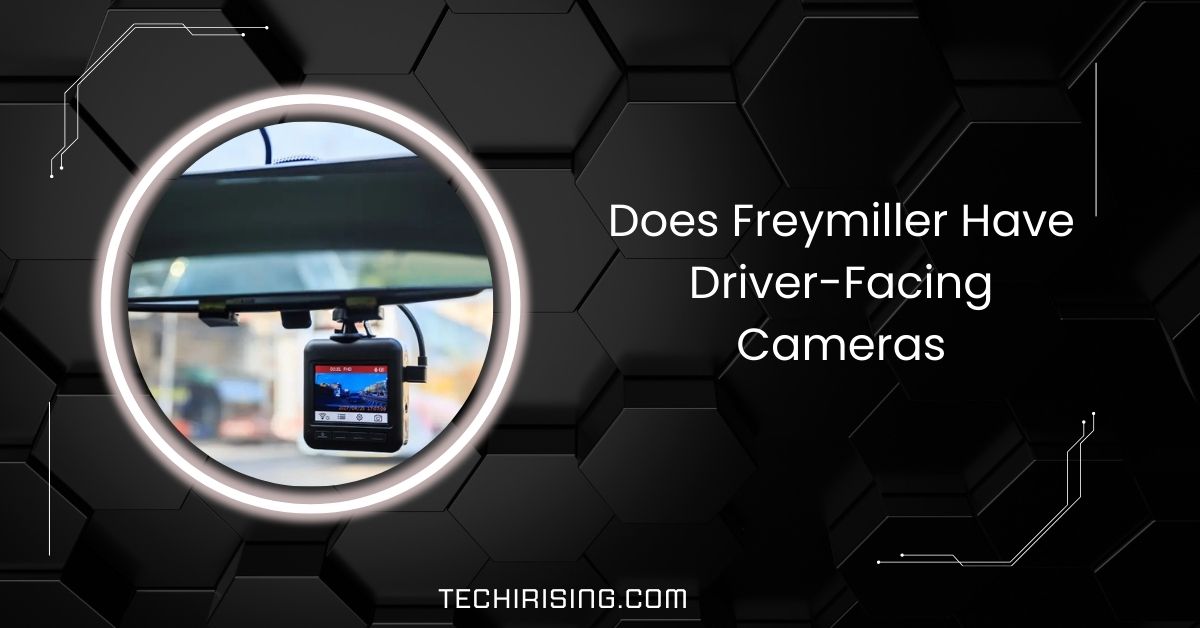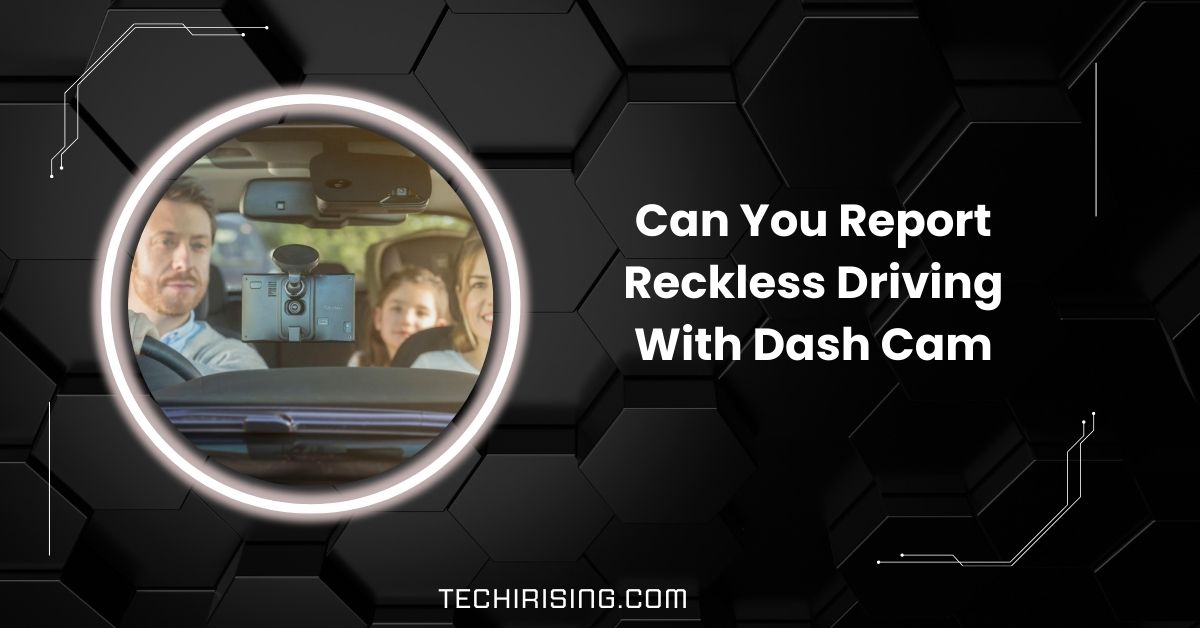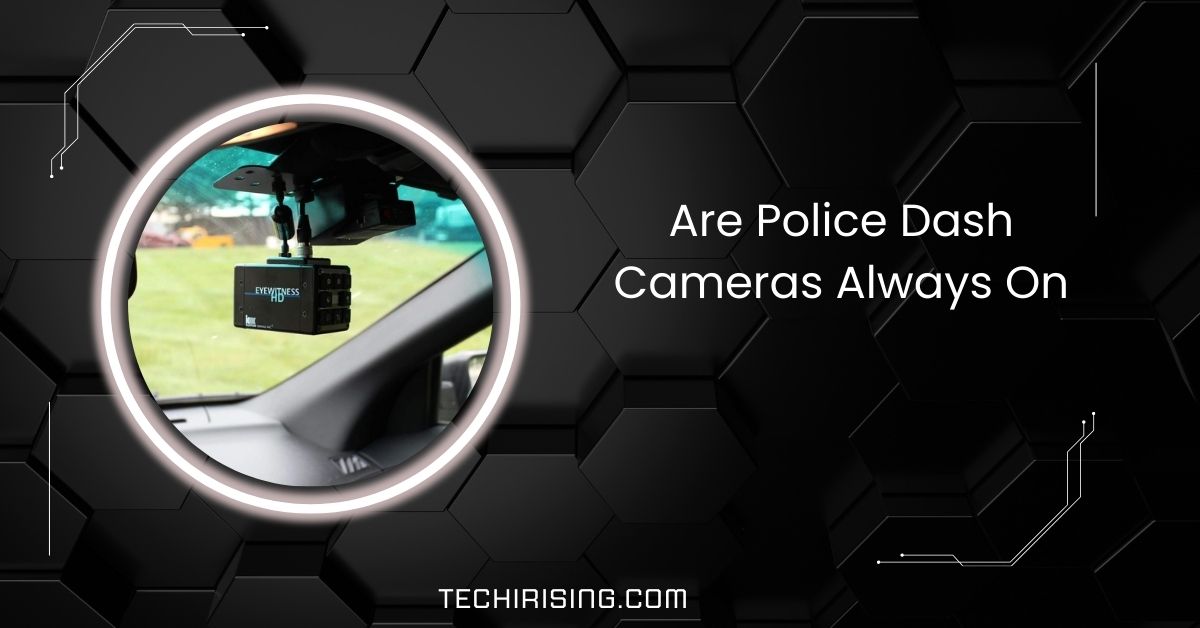Yes, most modern dashcams record audio along with video. This is possible because they have a built-in microphone that captures sounds inside the car. However, audio recording laws may vary depending on your location.
In this article, we’ll explore the features of dashcams with audio, how they work, and what you need to know about using them effectively.
What Are Dashcams?
1. Definition and Primary Purpose
A dashcam records everything happening on the road while you drive. It’s like having an extra pair of eyes that never blinks. Whether for safety, insurance claims, or just recording a beautiful drive, dashcams provide video proof of your journey.
2. Key Components of a Dashcam
- Camera Lens: Captures high-quality video of the road and surroundings.
- Microphone (Optional): Records audio inside or outside the car.
- Storage Device: An SD card usually saves recorded videos and audio.
- Power Source: Connects to the car battery or uses a built-in battery.
- Display Screen (Optional): This lets you view recordings directly on the device.
- Mounting System: Holds the dashcam securely on the windshield or dashboard.
- Sensors include motion detectors or G-sensors to detect impacts or sudden stops.
Audio Recording Capabilities of Dashcams
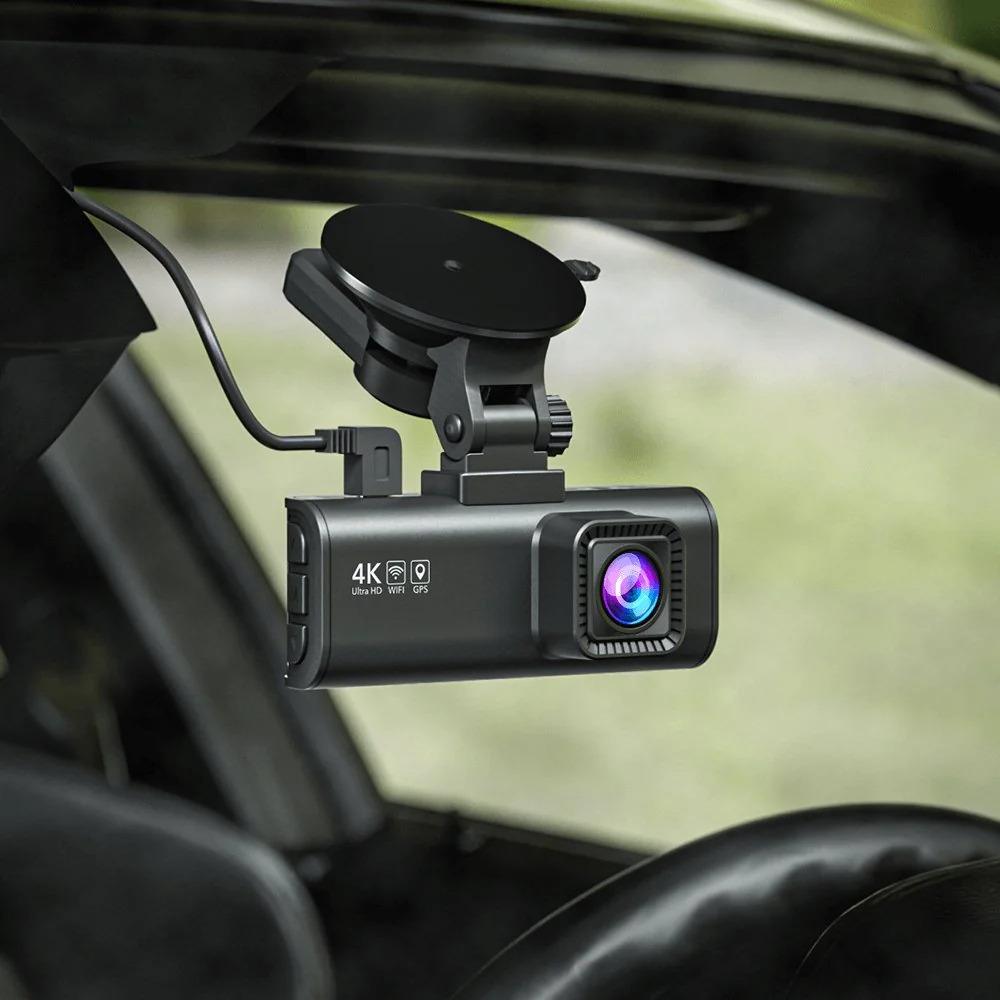
1. Do All Dashcams Have Audio Recording?
No, not all dashcams record audio. Some basic models focus only on video recording to keep costs low. Advanced dashcams usually come with built-in microphones to capture audio.
If you want audio features, check the product specifications before buying. Remember, audio recording may not be necessary for everyone, but it can be helpful in certain situations, like accidents.
2. Built-In Microphones and Their Function
Dashcams with built-in microphones can record sounds inside the car. These microphones capture voices, road noise, or any other audible events.
This feature helps add details to video footage, such as recording conversations during an accident or capturing verbal statements.
However, microphone quality can vary, so clear audio might depend on the dashcam’s design and placement in the car.
Also Read: Do Doctors Offices Have Cameras: The Facts You Should Know
Types of Dashcams and Audio Features
1. Basic Dashcams
Basic dashcams are affordable and focus on video recording only. They don’t have microphones, so they can’t capture sound.
These models are perfect if you only need video evidence of road incidents. While they lack fancy features, they’re reliable, easy to use, and great for drivers who want a no-frills solution for recording their journeys.
2. Advanced Dashcams with Audio Features
Advanced dashcams come with built-in microphones to record audio alongside video. They can capture conversations, road noises, or important sounds during accidents.
These models often include other smart features like GPS tracking or motion detection. They’re ideal for those who need detailed recordings for safety, evidence, or professional purposes, like rideshare or delivery drivers.
3. Dual-Channel and Multi-Camera Setups
Dual-channel dashcams record from two angles, like the front and rear of your car. Multi-camera setups take it further, capturing video and audio from multiple viewpoints, including the car’s cabin.
These systems are popular for fleet vehicles and taxis, offering full coverage for added security. They ensure every detail, inside and outside the car, is recorded.
Why Do Dashcams Record Audio?
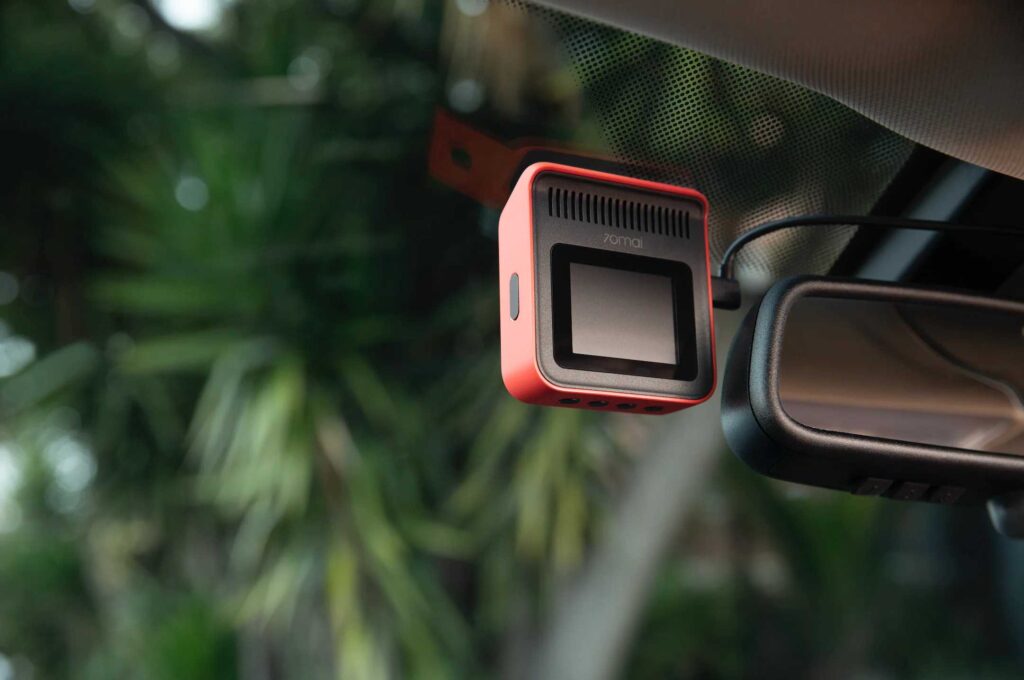
Dashcams record audio to add more details to their video footage. While video shows what happened, audio explains how it happened.
For example, it can capture conversations during accidents or important sounds like honking or shouting. This makes the recording more useful as evidence. Audio also helps monitor driver behavior, making it a valuable feature for personal and professional use.
1. Benefits of Audio Recording
- Adds Context to Footage: Audio complements video by capturing conversations, warnings, or environmental sounds that explain what’s happening.
- Strengthens Evidence: It provides an extra layer of proof during accidents or disputes, ensuring a more detailed account of events.
- Promotes Safety and Accountability: For professional drivers, it monitors interactions with passengers, reducing the risk of misunderstandings or false claims.
- Tracks Important Sounds: Records essential noises like honking, sirens, or mechanical issues that video alone might miss.
- Enhances Business Operations: Businesses can use audio to improve driver behavior, customer service, and compliance with company policies.
- Improves Insurance Claims: Clear audio can support claims by providing verbal confirmations or context during incidents.
Must Read: Do Ring Cameras Have Audio – Everything You Need To Know!
Legal and Privacy Considerations
1. Laws Governing Audio Recording
In many places, recording audio without consent is illegal. Some laws require permission from at least one person involved, while others need everyone’s consent.
For example, in “two-party consent” states, you can’t record conversations without approval from all parties. Always know your area’s rules to avoid trouble and ensure your dashcam recordings comply with the law.
2. Consent and Privacy Issues
Recording audio without consent can violate privacy rights. For example, passengers in your car might not want their conversations recorded.
To avoid problems, always let people know if your dashcam has audio recording. Use stickers or verbal warnings to inform them.
Being upfront protects you legally and respects other’s privacy, especially in rideshare or professional driving situations.
When Can Audio Recording Be Useful?
Audio recording can be helpful during accidents, disputes, or road incidents. It captures conversations, warnings, or sounds like honking that can clarify what happened.
For businesses, it monitors driver-passenger interactions and ensures compliance. It’s also great for personal use, like recording road noises or verbal agreements. This extra detail can make a big difference in tricky situations.
How to Check If Your Dashcam Records Audio
1. Identifying Microphone Presence
Dashcams with audio recording usually have a small microphone, which might be hidden near the lens or on the body.
Some devices label this area with a microphone symbol or have small holes for sound capture. If you are unsure, look for the microphone icon in the product’s manual or online descriptions. This helps you know if your dashcam records sound.
2. Reviewing User Manuals and Settings
To determine if your dashcam records audio, check the user manual. It will tell you if the model includes a microphone and how to use it.
If available, you can also explore the settings menu on the dashcam itself or in the mobile app. Look for options to turn audio recording on or off to confirm the feature is active.
How to Enable or Disable Audio Recording
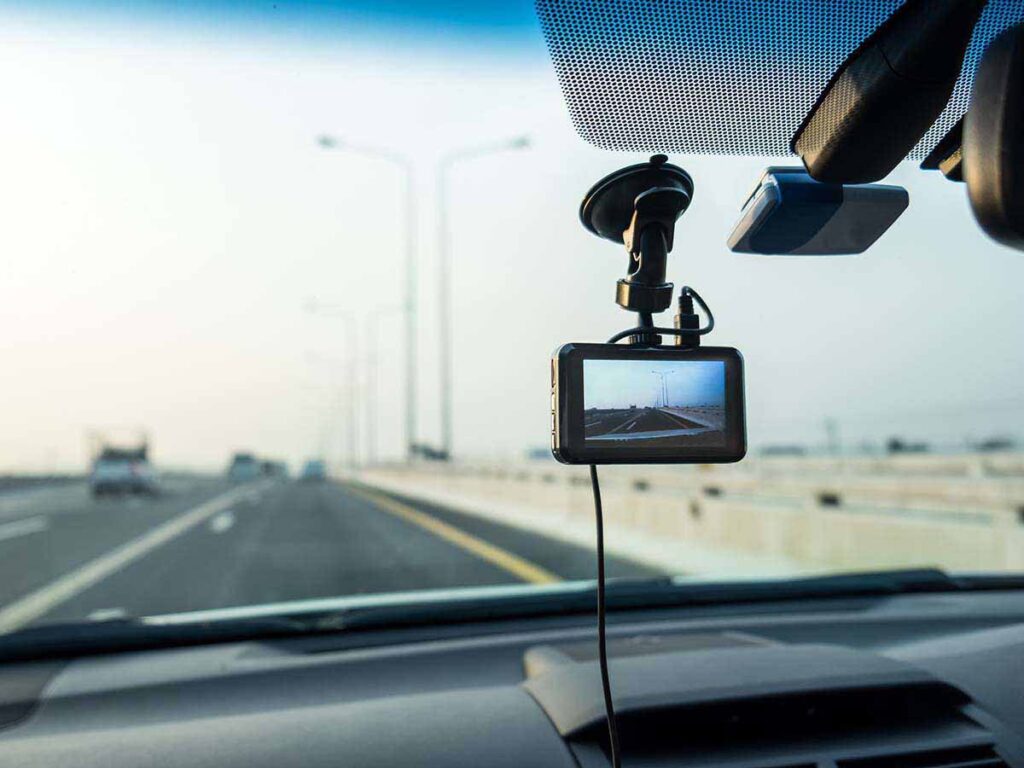
- Access Settings: Open the settings menu on your dashcam screen or through its mobile app.
- Locate Audio Settings: Look for an option labeled “Audio” or “Microphone,” which controls the recording feature.
- Toggle Audio Recording: Use the toggle or checkbox to turn the audio recording feature on or off based on your needs.
- Save Settings: After making changes, save the settings so they take effect.
- Test the Feature: Record a short video to confirm that audio is either being captured or disabled. This ensures the settings are working as expected.
- Check for Updates: If you can’t find the option, check for software updates, as newer firmware might offer more control over audio settings.
Need To Know: How To Keep Wasps Away From Blink Cameras – Solutions!
Pros and Cons of Audio Recording on Dashcams
1. Advantages
- Provides Full Context: Captures visual and audio details, offering a clearer picture of events.
- Strengthens Evidence: Useful in accidents or disputes, where verbal conversations and sounds are crucial.
- Helps in Insurance Claims: Audio can provide proof of what was said during an incident, helping to resolve claims faster.
- Improves Safety and Monitoring: Tracks driver behavior and interactions, especially for rideshare drivers or businesses.
- Records Important Sounds: Captures road noises, honking, or sirens that video alone can’t provide.
2. Drawbacks
- Privacy Concerns: Audio recording can violate privacy laws if all parties don’t consent.
- Legal Restrictions: In some areas, recording conversations without permission is illegal, which could lead to fines or penalties.
- Storage Space: Audio files can take up additional storage, which might reduce the dashcam’s recording time.
- Disturbing Sounds: The microphone may pick up unwanted background noise, making the footage unclear.
- Potential for Misuse: Audio recordings could be misinterpreted or used incorrectly without full context.
Tips for Using Dashcams with Audio
1. Inform Passengers About Audio Recording
Always let passengers know if your dashcam records audio. Displaying a sign or verbally informing them ensures you respect privacy laws and avoid misunderstandings.
2. Check Local Laws Before Recording
Understand the legal rules about audio recording in your area. Some places require consent from everyone in the car, while others only need one person’s approval.
3. Adjust the Sensitivity
If your dashcam allows it, adjust the microphone sensitivity. This helps reduce background noise and ensures only important sounds, like conversations or honking, are captured.
4. Regularly Check Settings
Periodically check your dashcam settings to ensure the audio recording works as expected. Make sure it’s turned on or off based on your needs for each trip.
5. Use Storage Wisely
Since audio files take up extra space, be mindful of your storage capacity. Clear old footage regularly or use high-capacity memory cards to avoid running out of space during important events.
Do Dashcams Record Audio Outside the Car?
Yes, some dashcams can record audio outside the car if the microphone is sensitive enough. However, this depends on the model.
Most dashcams focus on capturing audio inside the car, but high-quality ones can also record sounds from the outside.
Do Dashcams Record Audio Inside the Car?
Yes, many dashcams record audio inside the car, especially if they have a built-in microphone. This can capture conversations, road noises, and other sounds inside the vehicle during your drive. Always check the settings to turn this feature on or off.
Do Dash Cameras Record All the Time?
Most dashcams record continuously when powered on. They typically start recording when you begin driving and stop when you turn off the car. Some models offer features like loop recording, where older footage is overwritten if storage is full.
How Do I Know If My Dash Cam is Recording Audio?
Check your dashcam’s settings to see if it is recording audio. Look for an “audio” or “microphone” option in the menu. Some models show a microphone icon on the screen when audio recording is active.
Do Dashcams Record When Car is Off?
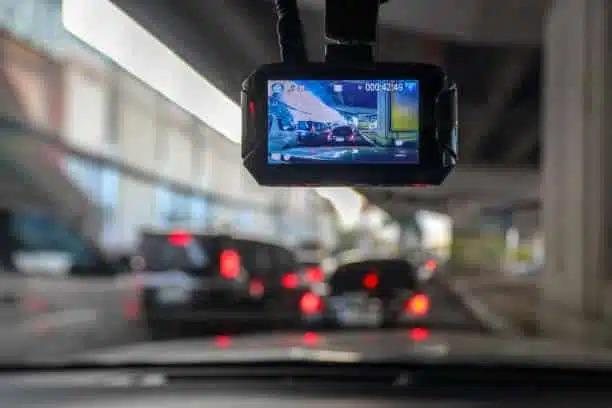
Generally, dashcams do not record when the car is off. However, some advanced models have a parking mode feature that records when the car is parked, often triggered by motion or impact. Check your model’s specifications for this feature.
Dash Cam with Audio Recording
Dash cams with audio recording can capture both video and sound. These models are great for getting a complete picture of events, especially during accidents. Look for dash cams that specify having a built-in microphone for this feature.
How Long Do Dash Cameras Record For?
Dash cameras typically record until the storage space is full or the car is turned off. Most use loop recording, meaning that when the memory card is full, the camera starts overwriting the oldest footage. Storage capacity affects recording length.
Does Motive Dash Cam Record Audio?
Yes, the Motive Dash Cam records audio. Its built-in microphone captures sounds inside the vehicle, including conversations or road noise. This can be useful for better understanding events during an incident or accident.
FAQs
1. Can You Hear Audio on a Dash Cam?
Yes, if your dashcam records audio, you can hear it when you review the footage. You’ll hear sounds like conversations or road noises.
2. Do Dashcams Pick Up Sound?
Many dashcams have built-in microphones, which allow them to pick up sound. They can record voices, road noise, or other sounds inside or outside the car.
3. Does a Dashcam Record All the Time?
Most dashcams record continuously while the car is running. They stop when the car is off, but some have a parking mode for recording while parked.
4. Can Police Look at Your Dash Cam?
Yes, police can ask to review your dashcam footage if it’s related to an investigation or accident. Make sure your recordings are clear.
5. Do Cameras Also Record Audio?
Some cameras record audio, especially if they have a microphone. Dashcams with audio can capture conversations or sounds during your drive.
Conclusion
In conclusion, dashcams with audio recordings provide valuable insights during road incidents, capturing both video and sound. While useful for safety and evidence, it’s essential to understand the legal and privacy implications. Always check your local laws and settings.

